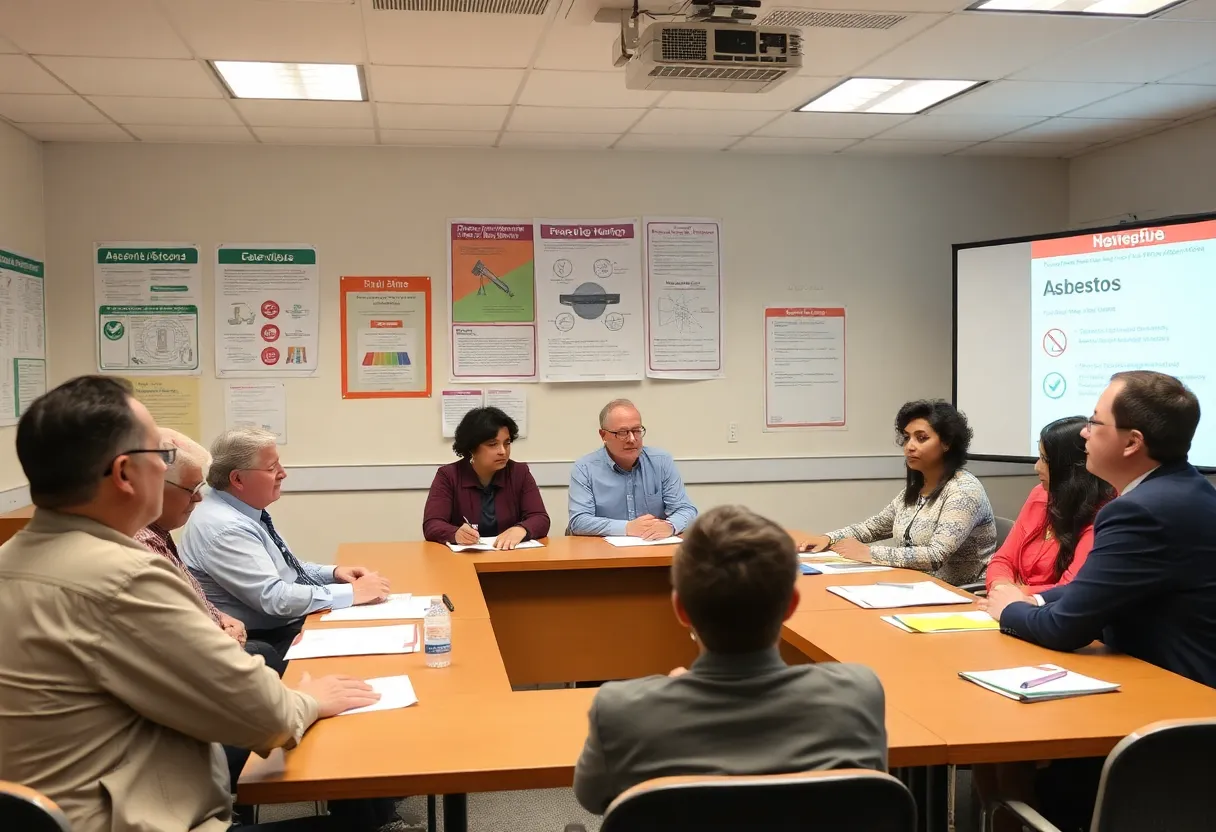News Summary
The Philadelphia School Board approves a deferred prosecution agreement with the U.S. Department of Justice regarding asbestos management in schools.
Philadelphia School Board Takes Historic Steps in Asbestos Management
In a landmark decision during their lengthy five-hour meeting, the Philadelphia School Board has approved a crucial deferred prosecution agreement with the U.S. Department of Justice concerning the management of asbestos in the district’s school buildings. This agreement sets a national precedent as it is the first instance of a school district facing criminal charges for violating environmental regulations.
Addressing Structural Issues
Concerns surrounding asbestos management have long haunted the Philadelphia educational landscape. The board’s decision signifies a substantial step toward prioritizing student safety and environmental compliance within the district. Furthermore, there are ongoing discussions about the overall state of school facilities, where Superintendent Tony Watlington has hinted at potential changes such as reducing standalone middle schools and possibly closing underperforming institutions.
The anticipated recommendations for these changes are expected to be formalized in the fall, which may lead to restructuring that better accommodates the academic needs of students while addressing facility disparities.
Charter Schools Under Scrutiny
The meeting saw intense discussions regarding six charter schools facing the prospect of nonrenewal. As part of this, the board has taken action to draft notices of nonrenewal for two schools: KIPP North Philadelphia and People for People. These institutions have displayed serious deficiencies in academic performance, with Russell Byers achieving a mere 41% and KIPP North Philadelphia scoring an alarming 23% in academic metrics. Additionally, both schools face significant issues regarding student suspensions.
Board President Reggie Streater underlined the importance of negotiating charters with conditions for struggling schools, emphasizing the urgency of ensuring quality education for all students in the district.
Community Concerns and Engagement
As public opinion was voiced during the meeting, parents, teachers, and charter advocates filled the room, sharing their perspectives on various charter schools and raising concerns about air quality and overall health conditions within school buildings. The necessity for improved public engagement in the facilities master planning process was notably discussed, aligning with calls from community members pertaining to air quality enhancements and general student welfare.
The current district attendance rates indicate that while there is a 68% student regular attendance recorded in May, teacher attendance stands slightly higher at 79%. These statistics present an opportunity for the board to evaluate the interplay between attendance and student performance as educational adjustments unfold.
Future Considerations for Charter Schools
Amid the tension surrounding numerous charter schools, the board’s engagement with the charter schools office included a comprehensive examination of the charter application process. This inquiry involves a $300,000 contract established with the National Charter Schools Institute to explore best practices, ensuring the future evolution of charter schools aligns with the district’s budgetary capabilities and educational goals.
Interestingly, amidst the discussions on existing charters, the Early College Charter School has also gained approval from the board, signifying the first new charter created since the district regained local autonomy in 2018. While this approval may appear promising, concerns over the financial impact on the district remain palpable among board members.
Looking Forward
As the board moves forward, the discussions surrounding the wellness policy—which sought to guarantee easier access to bathroom breaks and hydration for students—have been postponed due to significant pushback from the community. Anticipation surrounds future meetings, where more public engagement sessions will be held to capture input on the facilities planning process, ultimately shaping the educational landscape for Philadelphia students.
The upcoming decisions regarding school closures, charter renewals, and the management of asbestos issues are pivotal moments for the Philadelphia School Board as it seeks to innovate and transform student life in the city. The road ahead might be challenging, but maintaining a focus on safety, health, and academic excellence will serve as vital cornerstones in these advancements.
Deeper Dive: News & Info About This Topic
HERE Resources
Philadelphia School Board Takes Bold Steps Regarding Asbestos and Charter Schools
Philadelphia School District Faces Historic Criminal Charges Over Asbestos Violations
The Philadelphia School Board’s Historic 5-Hour Meeting Packed with Crucial Decisions
Philadelphia School District Charged in Groundbreaking Asbestos Case
Chrysotile Asbestos Ban Under Review: A Risky Rethink?
Major Legal Victory in Asbestos Case: $17.2 Million Verdict Against Georgia-Pacific
The Ongoing Battle Over Asbestos: EPA’s New Moves Cast Doubts
The Looming Shadow of Asbestos: Health Risks and Regulatory Challenges
Chrysotile Asbestos Ban Faces Uncertain Future Under Trump Administration
New Study Reveals Asbestos Exposure Thresholds Linked to Mesothelioma Risk
Additional Resources
- Philadelphia Inquirer: Asbestos Management
- Wikipedia: Asbestos
- Philadelphia Inquirer: Charter Renewals
- Google Search: Philadelphia charter schools
- PhillyVoice: Early College Charter School Approval
- Google Scholar: Charter schools performance
- Encyclopedia Britannica: Charter School
- Google News: Philadelphia school board



















